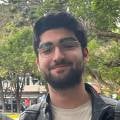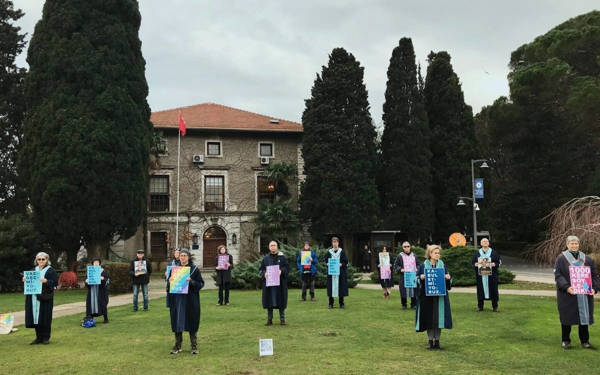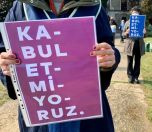In response to Boğaziçi University's Rector Naci İnci's three-year ban on outdoor graduation ceremonies, students organized their own alternative graduation on Wednesday at the South Campus.
The ceremony, attended by students, faculty, and families, began with a march from the Engineering Faculty Building to the South Campus square.
The administration tried to disrupt the event by playing loud music from a sound system in the campus square throughout the ceremony. Despite initial compliance, security personnel refused to lower the volume when students and faculty requested it, leading to a scuffle between security and students.
Students highlight ongoing resistance
Student representative Rümeysa Temiz addressed various issues, from Palestine to May Day arrests and the Pride March ban, emphasizing continued resistance. “We resisted while studying, we persisted at graduation, and we will continue our resistance in the future,” she said.
Prof. Dr. Mine Eder, seen as the elected rector by the university community, spoke on behalf of all faculty members, advising students to avoid damaging institutions for personal gain and to instead work on strengthening them. "Dear students, be sure not to break institutions for personal ambitions. Respect their traditions and laws, and think about how to strengthen them instead of tearing them down."
Economics professor Prof. Dr. Ünal Zenginobuz criticized the current administration's inability to manage the university and their attempts to destroy it. "This is a betrayal to youth," he said. He praised the students for their efforts and expressed hope that Boğaziçi University would eventually return to its former state.
The event concluded with the distribution of diplomas to the graduates.
Background
Since January 2021, Boğaziçi University has been a focal point for protests against the Turkish government's increasing control over academic institutions. The controversy began when President Recep Tayyip Erdoğan appointed Melih Bulu as the university's rector, bypassing the traditional process of electing a rector from within the university. This move was seen as an attempt to exert greater control over the university, sparking widespread protests from students and faculty.
The government's response to these protests has been severe. Police have frequently used force to disperse demonstrators and have detained many participants. In one notable incident on February 1, 2021, 159 students, faculty, and activists were detained during a protest at the university. This crackdown has been criticized by various human rights organizations for violating the rights to freedom of expression and assembly.
In July 2021, Melih Bulu was replaced by Prof. Naci İnci, a longtime faculty member at Boğaziçi University. However, the protests continued as İnci, like Bulu, was appointed by President Erdoğan rather than elected by the university senate. This perpetuated the view among students and faculty that the administration was undermining the university's autonomy. Despite his academic background, İnci has aligned with government policies, further fueling discontent among the university community
The protests at Boğaziçi University are part of a broader trend of increasing authoritarianism in Turkey, where the government has been accused of undermining democratic institutions and silencing dissent. This includes efforts to control the judiciary, media, and academic institutions, as well as crackdowns on opposition groups and civil society organizations.
(TK/AD/VK)













